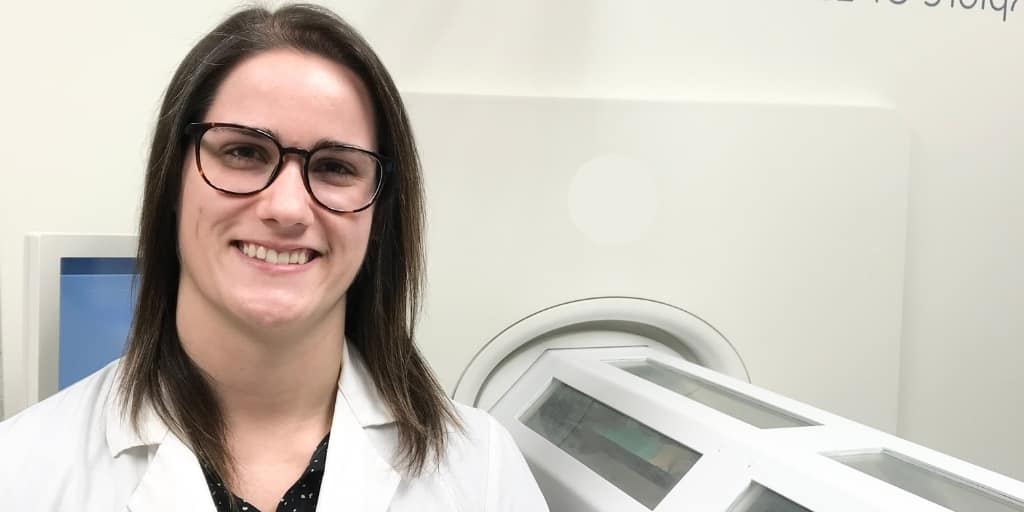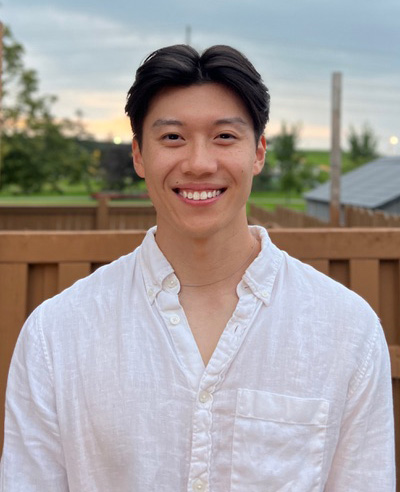Breast Cancer Society of Canada Written Blog Post Questionnaire 2022: Dr. Sawyer Badiuk
1. Please tell us a little bit about yourself (i.e. name, current degree program/department, supervisor/lab, previous education/experience etc.).
My name is Sawyer Badiuk, and I am a Ph.D. candidate in the Department of Medical Biophysics at the University of Western Ontario, working under the supervision of Dr. Eugene Wong and Dr. Jeff Chen. I hold a BSc with honours specialization in Biomedical Physics from Laurentian University and a CAMPEP accredited MSc in Medical Physics from the University of Manitoba.
2. Why is the TBCRU Studentship Award important to you, and how does it advance your research?
Being a recipient of the TBCRU Studentship Award is an incredible honour and it connects me with other trainees and researchers all with one common goal, researching breast cancer. The award not only provides funding for my experiments that advance our knowledge about breast cancer treatments, but helps me motivate and communicate my research.
3. What is the objective of your research project and what problem(s) you hope to solve?
My research is aimed at applying novel imaging methods to find innovative radiation treatments to prevent new and recurring breast cancer brain metastases.
4. In a few lines, please describe your research project.
Breast cancer is a devastating disease when it spreads and grows in the brain. This is common and is exceedingly challenging to treat. The standard radiation treatment for breast cancer growing in the brain is to target the growing tumours. However, within one year, half the patients will have new tumours growing again in other parts of the brain. Previously whole brain radiation was used to kill the undetectable cancer cells in the brain. Although it proved effective, this approach has significant side effects. My research aims to find a different whole brain radiation dose and treatment schedule that controls the cancer with reduced side effects. A novel imaging approach will be used to monitor the response of the brain and cancer following treatment. If this proves to be effective, then this can be translated to the clinic to combat the problem of breast cancers spread to the brain.
5. Have there been any changes to or any advancements in your research since your project began?
The project is still in its early stages, however our preliminary findings have identified some interesting interactions between radiation and inflammation in the brain. We plan to investigate this relationship more thoroughly and see how cancer contributes as well.
6. Have you had an opportunity to present (or publish) your research to your peers or the broader research community? Was it at a national or international meeting or in some other way?
Recently, I published a review paper investigating the potential of glial activation imaging (used in my research) in radiation treatment of breast cancer brain metastases. Additionally, this past summer I was selected as a MedPhys Slam Finalist for the International chapter and presented my research at the American Association of Physicists in Medicine (AAPM) Annual Meeting in the form of an oral presentation.
7. If you received feedback following your presentation how has it helped you and your research?
I find questions and feedback following a presentation to be very helpful. They often provide me with more information on potential research methods to look into or make me think about the bigger picture.
8. How will your research be applied in the clinic or in a real-world setting? How will patients benefit from the results of your work?
Following the completion of our preclinical studies, we hope to employ our novel imaging approach and preclinical data to a dose-finding clinical trial for breast cancer patients.
9. Tell us about your involvement in the Breast Cancer Society of Canada fundraising events (Dress for the Cause, Mother’s Day Walk).
I have been an avid participant in the different fundraising events held by BCSC, including Dress for the Cause in the fall and the One Billion Steps Challenge in the spring. I love working together with the other trainees to plan trivia nights and compete against my supervisors to get the most steps.
10. What are your hobbies? What are you currently reading, watching or listening to outside of the lab?
Outside of the lab, I enjoy taking in the outdoors and being active through hiking, camping, biking. I am currently reading the Witcher series and enjoy watching thriller movies in my downtime.




